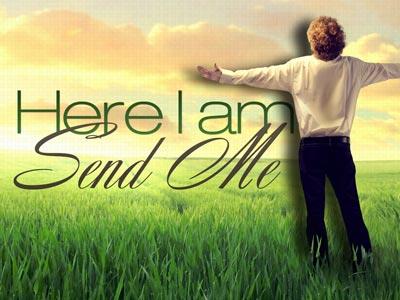-
Priests Of The Kingdom
Contributed by Ken Pell on Nov 28, 2017 (message contributor)
Summary: God's covenant people serve as “Priests of the Kingdom” offering reconciliation to all.
PRIESTS OF THE KINGDOM
Rev. 5:6-10
Sermon Objective: The Church serves as “Priests of the Kingdom” offering reconciliation to all.
INTRO
Last week we began looking at the two identifying marks of the church given in Rev. 5:10.
We discovered that this was not the first time they were mentioned in the book (see Rev. 1:5-6); nor will it be the last; and such repetition is a clue helping us grasp primary themes and emphasis.
We also talked about how these identifying marks would help the second century church of Asia Minor cope with the dark times to come. And that these marks would be unpacked and utilized throughout the remainder of The Revelation.
We only got as far as the first mark last week. We looked at what it means to be a KINGDOM.
We looked at the danger of living on a horizontal plane.
• I suggested that the Kingdom of God is expected to transcend the Kingdoms of this world.
• That our message of Good News is more compelling than the earth-bound Kingdoms’ messages proclaimed on the national news.
• That it is idolatry to have an allegiance to this world … there is something authentic and motivating about having “No King but Jesus.”
We also discovered that being God’s Kingdom means we will reign and rule. However, as we took a sneak peak at this week’s identity mark, we reminded ourselves what God means when he says we will reign.
Jesus said “The kings of the Gentiles lord it over them; and those who exercise authority over them call themselves Benefactors. But you are not to be like that. Instead, the greatest among you should be like the youngest, and the one who rules like the one who serves.” (Luke 22:25-26)
That, of course, brings us to your next identity mark … you are … we are … PRIESTS.
REV. 5:6-10
6Then I saw a Lamb, looking as if it had been slain, standing in the center of the throne, encircled by the four living creatures and the elders. He had seven horns and seven eyes, which are the seven spirits of God sent out into all the earth. 7He came and took the scroll from the right hand of him who sat on the throne. 8And when he had taken it, the four living creatures and the twenty-four elders fell down before the Lamb. Each one had a harp and they were holding golden bowls full of incense, which are the prayers of the saints. 9And they sang a new song: "You are worthy to take the scroll and to open its seals, because you were slain, and with your blood you purchased men for God from every tribe and language and people and nation.
10You have made them to be a kingdom and priests to serve our God, and they will reign on the earth."
PRIESTS
It has always been God’s design and desire for His people to serve the nations. From the very beginning birth pangs of a people, God has made this clear. While speaking to the nomadic Israelites through Moses (Exodus 19:5-6) YHWH said, “Now if you obey me fully and keep my covenant, then out of all nations you will be my treasured possession. Although the whole earth is mine, you will be for me a kingdom of priests and a holy nation …” (emphasis added).
This desire of God’s was well known by His covenant people.
Some from the Jewish tradition would suggest that this is the underlying meaning of the story of Jonah as well. That Jonah represents Israel and God’s call to the nations, the big fish represents Israel’s exile for their refusal to obey, and that even after the exile they still did not get it or own their calling as priests.
A quick review of the latter third of Isaiah informs us that, after the exile, it was still God’s design and desire (c.f. Isaiah 42:5-7 and Isaiah 60:2-3).
Jesus’ sermon on the Good Samaritan also drove home the objective of God and the disobedience of His people.
• And then we turn to The Revelation.
• Has God’s design and desire changed?
• Does He now wish for his people to be something other-than priests to the nations?
The answer is no.
Rev. 20:6 ties the priesthood of the church and the kingdom together. It reads: “Blessed and holy are those who have part in the first resurrection. The second death has no power over them, but they will be priests of God and of Christ and will reign with him for a thousand years.”
We, Jesus’ church, are priests.
Claiming your identity as God’s priest carries specific implications and powerful expectations doesn’t it?
It has the potential of altering how we understand ourselves as a church doesn’t it?

 Sermon Central
Sermon Central



